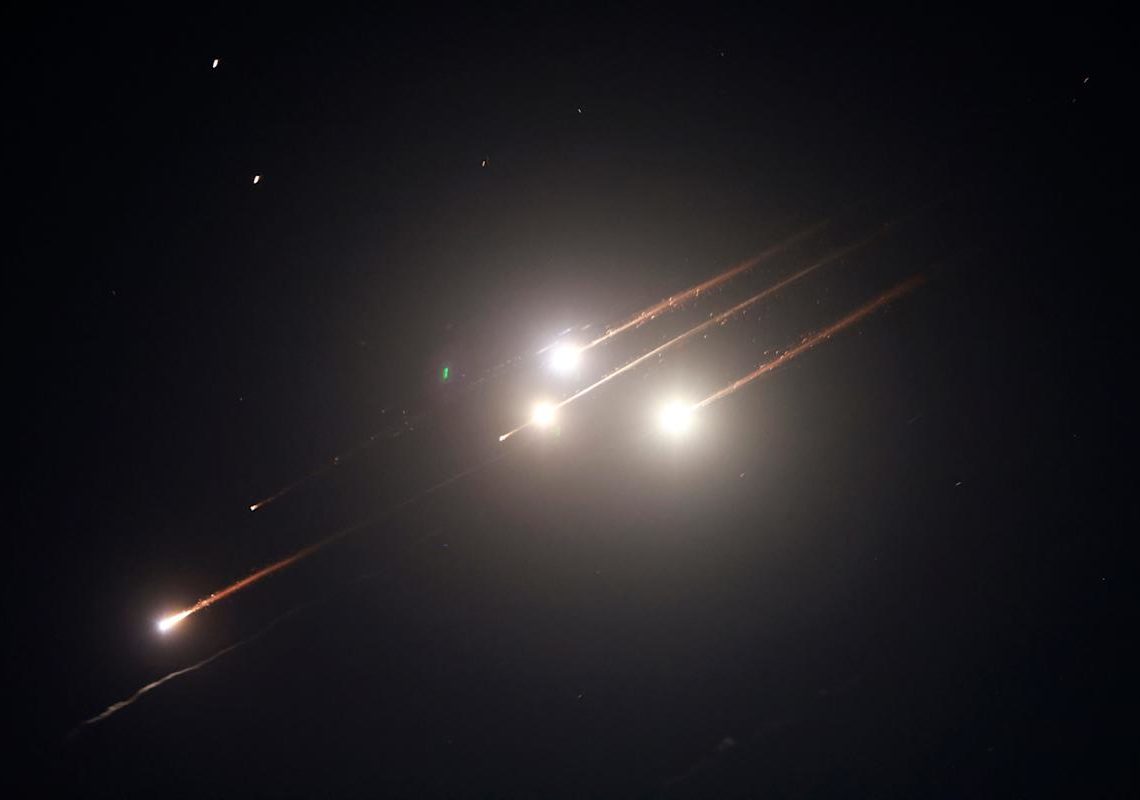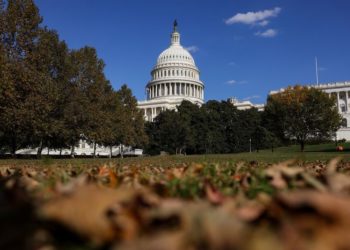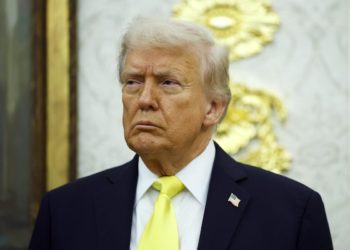Iran launched three retaliatory waves of missiles at targets in Israel, as Israelis rode out the attacks in bomb shelters and world leaders discussed the deepening conflict.
Plumes of smoke rose over central Tel Aviv and at least one building was hit and set ablaze. Israel said fewer than 100 rockets had been fired from Iran. Emergency officials reported five people were injured, one in “moderate condition” and four with light shrapnel injuries.
The U.S. military has helped shoot down Iranian missiles headed for Israel, American officials told USA TODAY.
More: Israel attacks Iran: See strike map, satellite images of nuclear sites
The Iranian counterattack came as President Donald Trump said there “is still time” to make a deal over the country’s nuclear program after Israel launched a June 13 staggering assault on Iran’s military and nuclear facilities.
“There has already been great death and destruction,” Trump wrote on social media June 13 after the attacks. “Iran must make a deal, before there is nothing left.”
Follow along with USA TODAY’s live coverage from Washington and the world.
Above-ground facilities at Natanz destroyed, IAEA chief says
Rafael Mariano Grossi, head of the International Atomic Energy Agency told the Security Council that Israel’s attack on the Natanz uranium enrichment site had “destroyed” above-ground facilities.
That part of the enrichment plant was where Iran was producing uranium enriched up to 60%, he said.
He said there was “no indication of a physical attack” on underground facilities housing centrifuges used to enrich uranium, noting those operations could have been affected by damage to above-ground electric infrastructure.
More: International Atomic Energy Agency report spells out past secret nuclear activities in Iran
Grossi said the extent of damage at other Iranian nuclear sites was unclear.
“I have repeatedly stated that nuclear facilities must never be attacked, regardless of the context or circumstances, as it could harm both people and the environment,” he said.
In U.N. showdown, Iran says Washington is responsible
Iran told an emergency session of the U.N. Security Council the U.S. was just as responsible for Israeli strikes on Iranian nuclear and military sites as Israel itself.
“By aiding and enabling these crimes, they share full responsibility for the consequences,” Iranian representative Amir-Saeid Iravani told the Council.
He said 78 people had been killed in the Israeli attacks, including top military officials, and more than 320 injured, most of them civilians.
President Trump on June 13 celebrated the strikes as a way to force Iran into accepting his terms in a nuclear deal, noting the attacks were carried out with American-made weapons.
U.S. military part of Israel’s missile shield
The U.S. military has helped shoot down Iranian missiles headed for Israel, U.S. officials told USA TODAY, as President Trump spoke by phone with Israeli Prime Minister Benjamin Netanyahu.
It wasn’t immediately clear which U.S. military assets were used.
Hundreds of thousands of Americans live in Israel, and roughly 40,000 U.S. servicemembers were stationed in the Middle East as of last April.
-Francesca Chambers, Tom Vanden Brook
Trump said he gave Iran a chance
There was one message the president hammered home to U.S. and global news outlets before Iran’s missile attack: It’s not too late for Tehran to accept Trump’s nuclear deal. “I couldn’t get them to a deal in 60 days. They were close, they should have done it. Maybe now it will happen,” he told Axios.
“I tried to save Iran humiliation and death,” Trump told Reuters.
More: ‘They didn’t die of the flu’: Trump says Iran nuke deal ‘hardliners’ killed in strikes
Israel hit Iranian nuclear sites and military bases and killed top generals and nuclear scientists in several waves of airstrikes June 13. Iranian Supreme Leader Ali Khameni promised a powerful response.
Netanyahu says much of Iran’s missile stocks destroyed
Israeli Prime Minister Benjamin Netanyahu said the raids on Iran had destroyed a significant amount of Tehran’s ballistic missile capabilities.
His statement came amid retaliatory missile strikes launched from Iran, as President Trump worked the phones with allies in Saudi Arabia and the United Kingdom.
Israel’s goal: No Iran nukes, no ballistic missiles
Israel said it would continue its strikes on Iran, as the U.N. Security Council prepared to meet.
“We don’t know how long it will take,” Israel’s U.N. Ambassador Danny Danon told reporters. “We will continue to act until we will know that we eliminated the threats.”
“The goals of our operation are very clear – to make sure that Iran will not have nuclear capabilities and to stop the ballistic missile operation,” he said. “I will explain to the council… and I expect the Security Council to understand.”
Israeli briefing cut short amid Iranian strike
A live feed of a scheduled press briefing by Brigadier General Effie Defrin, an Israeli army spokesperson, was cut short amid an incoming Iranian attack on central Israel, Reuters reported.
UN Security Council will meet over Iran attacks
The United Nations Security Council will meet later on June 13 over Israel’s strikes on Iran as Israel’s U.N. envoy said the military operation would continue until Iran’s nuclear capabilities and ballistic missile operation were eliminated.
Iran’s Foreign Minister Abbas Araghchi requested the council meeting in a letter to the 15-member body, saying Israel “has now crossed every red line, and the international community must not allow these crimes to go unpunished.”
“Iran reaffirms its inherent right to self-defense as enshrined in Article 51 of the UN Charter and will respond decisively and proportionately to these unlawful and cowardly acts,” Araghchi wrote.
-Reuters
Iran’s supreme leaders says Israel will be left ‘helpless’
In a public address Iranian Supreme Leader Ali Khamenei promised revenge for the ongoing Israeli air strikes that have killed top military and nuclear officials and damaged the country’s chief uranium enrichment site.
Khameni said Israel’s armed forces would be left “helpless” in the face of Iranian retribution, Reuters reported. Iran’s president, Masoud Pezeshkian, promised a strong response.
More: Iran’s Supreme Leader Ayatollah Ali Khamenei dismisses US nuclear proposal
Missile launched from Yemen, Israel says
Shortly after 12:30 p.m. Eastern time, the Israeli military said a missile had been launched from Yemen, where Houthi militants have previously fired on targets inside Israel.
The missile struck in Hebron, on the West Bank, Israel said.
Separately, explosions were heard in Isfahan, Iran, and air defenses were activated in Tehran, the capital.
Trump says he doesn’t know if Iran’s nuclear program survived Israeli attack
President Trump told Reuters in a phone interview it was unclear if Iran still has a nuclear program following Israeli strikes on the country.
“Nobody knows. It was a very devastating hit,” Trump said.
Trump told Reuters the U.S. still has nuclear talks planned with Iran on June 15, but that he is not sure they will still take place. He said it was not too late for Iran to make a deal.
“We knew everything, and I tried to save Iran humiliation and death,” Trump said. “I tried to save them very hard because I would have loved to have seen a deal worked out. They can still work out a deal however, it’s not too late.”
-Reuters
A stolen glimpse of Natanz
Iran forbids almost everybody, but especially journalists, and especially ones from American news outlets, from getting anywhere near Natanz and other nuclear sites, even though much of it is buried deep in the ground.
Iran’s main uranium enrichment facility is at Natanz, a city and district located about 135 miles southeast of Tehran − two-thirds of the way along a dusty highway from Iran’s capital to the city of Isfahan, known for its grand boulevards and historically important Islamic architecture, palace and mosques.
But on a USA TODAY trip to Iran in 2018, during President Donald Trump‘s first term, a reporter did snap a photo from the side of the road of the mountainous desert landscape recently pummeled with Israeli bombs.
-Kim Hjelmgaard
Attacks scramble air travel
Airlines steered clear of much of the Middle East on Friday after Israeli attacks on Iranian sites forced carriers to cancel or divert thousands of flights in the latest upheaval to travel in the region.
Delta Air said it was pausing its flights from New York to Tel Aviv through August 31. About 1,800 flights to and from Europe had been affected by early evening June 13, including approximately 650 cancelled flights, according to Eurocontrol.
Air India, which flies over Iran on its Europe and North American flights, said several flights were diverted or returned to their origin, including ones from New York, Vancouver, Chicago and London.
Eastern Iraq, near its border with Iran, is one of the world’s busiest air corridors, with dozens of flights crossing between Europe and the Gulf, many on routes from Asia to Europe, at any one moment.
-Reuters
Trump says Iran has reached out to the U.S.
The president told NBC News that Tehran’s negotiators had made contact after the Israeli strikes.
“They’re calling me to speak,” Trump said. Asked who in particular was calling, he replied, “The same people we worked with the last time … Many of them are dead now.”
Israel vs. Iran: Global reaction
Multiple world leaders and foreign ministries called for restraint and some condemned Israel’s strikes.
In the Arab world, Saudi Arabia described Israel’s attack as “heinous” and said the international community bears “a great responsibility to halt this aggression.” Oman, which has been hosting the nuclear talks between the U.S. and Iran, said it was “reckless.”
In Europe, German Chancellor Friedrich Merz, critical of Israel in recent weeks over the war in Gaza, said Israel had a right to “defend its existence.” Merz increased protections for Jewish institutions in Germany. NATO Secretary General Mark Rutte said it was “crucial” for Israel’s allies to de-escalate tensions.
In Asia, China’s foreign ministry spokesperson Lin Jian said Beijing “is deeply concerned about the grave consequences that the operations may cause, and urges relevant parties to avoid further escalation of tension.”
The European Union “urges all parties to exercise maximum restraint,” EU Commission President Ursula von der Leyen said in a statement.
-Kim Hjelmgaard
U.S. knew Israel attack was coming, Trump says
President Trump told the Wall Street Journal that Israel’s punishing strike on Iran was no secret to U.S. policymakers.
Asked if Israel had informed him ahead of the air strikes, Trump told the Journal: “Heads-up? It wasn’t a heads-up. It was, ‘We know what’s going on.'”
Trump said the air strikes were “a very successful attack, to put it mildly,” and that he planned to speak with Israeli Prime Minister Benjamin Netanyahu later on June 13.
In Israel, Netanyahu later confirmed the U.S. knew of his plans.
‘They didn’t die of the flu’: Trump says Iran deal ‘hardliners’ are dead
Trump told CNN anchor Dana Bash the U.S. supported Israel in its strikes on Iran. Bash said she spoke with the president on the phone briefly the morning of June 13.
“Iran should have listened to me when I said − you know I gave them, I don’t know if you know but I gave them a 60-day warning and today is day 61,” Trump told her.
“They should now come to the table to make a deal before it’s too late. It will be too late for them. You know the people I was dealing with are dead, the hardliners,” he added, without specifying who those “hardliners” are.
The Trump administration has been negotiating with Iran over the country’s nuclear program, with the aim of preventing Tehran from producing a nuclear weapon.
Bash said she asked Trump if the people he “was dealing with” died as a result of Israel’s attack.
“They didn’t die of the flu,” he said. “They didn’t die of Covid.”
-Savannah Kuchar
Israel seeks to remake Mideast?
Israel says its strike on Iran’s nuclear infrastructure and military leaders is about self-defense and ensuring its survival.
Some experts say it risks plunging the Middle East into a wider war that also reflects Israel’s post-Oct. 7-attacks strategy of countering Iran’s regional influence.
Burcu Ozcelik, a research fellow in Middle East Security at the Royal United Services Institute, a London think tank, said Israel’s attack on Iran’s nuclear program and military leadership overnight amounted to a “Pandora’s box” that’s been cast wide open.
“Israel’s sweeping overnight air campaign against Iranian targets is an escalation that risks reshaping the strategic landscape of the Middle East,” he said.
Neil Melvin, RUSI’s international security director, said Israel’s strategy has been unfolding since the Hamas terrorist attacks of October 2023. “Israel has systematically sought to roll back Iran’s regional proxy forces through military operations in Gaza, Lebanon, Syria and Yemen and through these actions to reshape the regional geopolitical balance in Israel’s favor.”
-Kim Hjelmgaard
Trump: ‘I gave them a chance’
The Trump administration has been negotiating with Iran over its nuclear program with the goal of preventing the country from obtaining a nuclear bomb. Although Iran insists its nuclear program is for civilian energy purposes only, the International Atomic Energy Agency, the United Nations’ nuclear watchdog, recently concluded that Iran was very close to reaching the 90% uranium enrichment level required to build a nuclear weapon.
“I gave Iran chance after chance to make a deal,” Trump said in his post. “I told them, in the strongest of words, to ‘just do it,’ but no matter how hard they tried, no matter how close they got, they just couldn’t get it done.”
The Israel Defense Forces said more than 200 of its fighter jets struck dozens of targets in Iran June 13 as part of a wave of attacks. The IDF said it successfully “damaged” an underground area of Iran’s uranium enrichment facility at Natanz, a district in central Iran, that contained a “multi-story enrichment hall with centrifuges, electrical rooms and additional supporting infrastructure.”
Israel Prime Minister Benjamin Netanyahu said the IDF hit additional targets “at the heart” of the Islamic Republic’s programs for nuclear weaponization and enrichment, as well as its ballistic missile program. Netanyahu added that “Iran’s leading nuclear scientists” were also targets, and that the IDF’s attacks will continue for “as many days as it takes.”
Iran’s Supreme Leader Ayatollah Ali Khamenei confirmed several of his nation’s senior military commanders and nuclear scientists were killed in Israel’s attacks, which struck parts of Iran’s capital Tehran. Khamenei also warned Israel had “prepared a bitter fate for itself.”
Trump is meeting with the National Security Council on June 13.
Trump said June 12 that he didn’t want Israel to attack Iran while he’s actively negotiating an agreement that could prevent Tehran from obtaining a nuclear weapon.
“As long as I think there is an agreement, I don’t want them going in, because I think that would blow it. Might help it, actually. But it also could blow it,” Trump told reporters during a White House event.
Contributing: Davis Winkie, Francesca Chambers, Jennifer Borresen
This article originally appeared on USA TODAY: Iran counterattacks, firing waves of missiles at Israel: Live updates
The post Iran launches missile counterattack on Israel after punishing airstrikes appeared first on USA TODAY.




